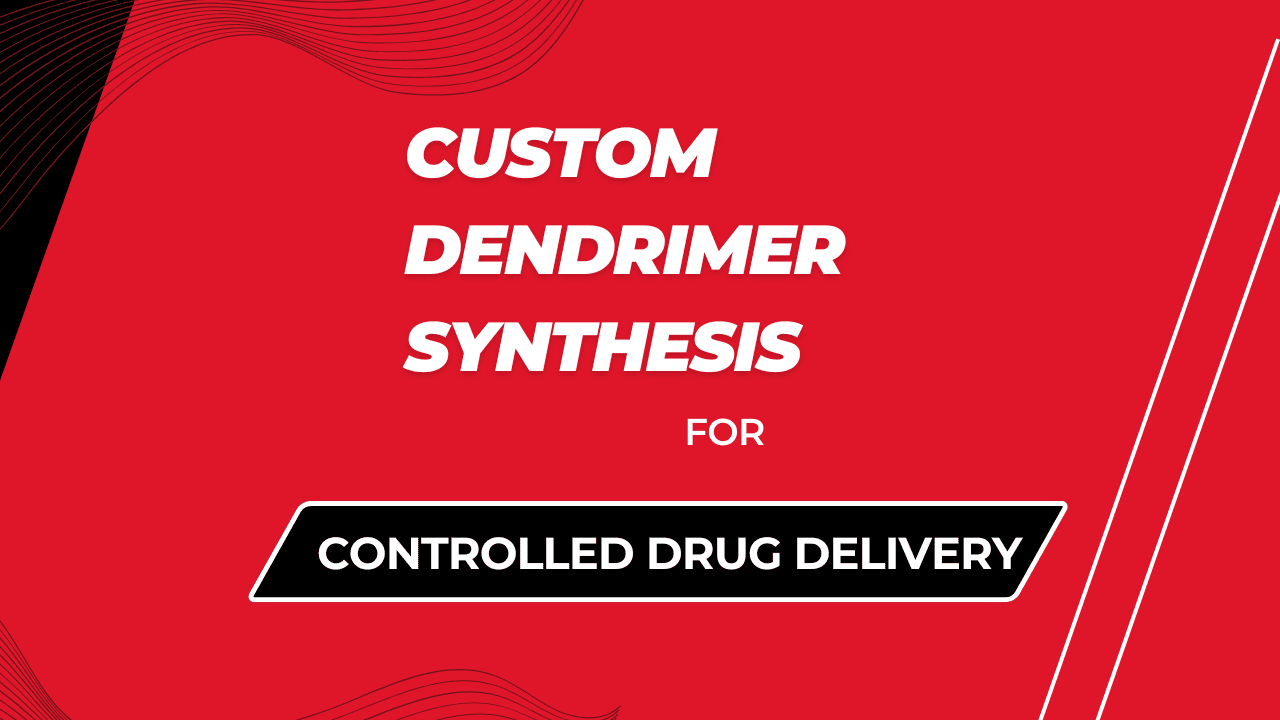Introduction
Cyclodextrin-based dendrimers have emerged as a sophisticated solution for enhancing the delivery of antiviral agents. These advanced materials combine the unique properties of cyclodextrins and dendrimers, offering new possibilities for overcoming the limitations of conventional antiviral therapies. At Resolvemass Laboratories, we specialize in custom synthesis and analytical services, and we are pioneering the development of cyclodextrin-based dendrimers for targeted and controlled antiviral drug delivery. This blog explores the intricate chemistry, advantages, and applications of cyclodextrin-based dendrimers in the field of antiviral drug delivery.
Cyclodextrins: The Core of Inclusion Chemistry
Cyclodextrins are cyclic oligosaccharides with a hydrophobic central cavity and a hydrophilic outer surface. This structure allows them to form inclusion complexes with a variety of guest molecules, including drugs, enhancing their solubility and stability.
- Types of Cyclodextrins: The most commonly used cyclodextrins in drug delivery are α-cyclodextrin, β-cyclodextrin, and γ-cyclodextrin. Each type has a different cavity size, which affects its ability to encapsulate different antiviral agents.
- Mechanism of Inclusion: Cyclodextrins encapsulate guest molecules within their central cavity, protecting them from degradation and improving their solubility in aqueous environments. This inclusion complexation is particularly beneficial for drugs with poor solubility or stability.
Dendrimers: Tailored Architecture for Precision
Dendrimers are highly branched macromolecules with a core, branching units (dendrons), and terminal functional groups. Their tree-like structure provides a high degree of control over their size, shape, and surface properties.
- Synthesis: Dendrimers are synthesized through iterative processes that involve the stepwise addition of branching units. This method ensures precise control over the dendrimer’s size and functionality.
- Functionalization: The terminal groups of dendrimers can be modified to introduce various functional groups, including those that can interact with drugs or biological targets. This versatility is key to developing tailored drug delivery systems.
Integrating Cyclodextrins with Dendrimers: The Hybrid Approach
Combining cyclodextrins with dendrimers creates cyclodextrin-based dendrimers, which leverage the strengths of both components to enhance antiviral drug delivery.
- Synthesis of Cyclodextrin-Based Dendrimers: The synthesis involves attaching cyclodextrin units to a dendrimer core through chemical linkages. Methods such as click chemistry or other conjugation techniques are employed to ensure stable attachment and functionalization.
- Structural Features: The resulting hybrid structures feature cyclodextrin units attached to the dendrimer core, creating a platform with multiple cyclodextrin cavities and a highly branched surface. This configuration enhances the encapsulation and delivery of antiviral agents.
Advantages of Cyclodextrin-Based Dendrimers for Antiviral Drug Delivery
- Enhanced Solubility and Stability: Cyclodextrin-based dendrimers improve the solubility and stability of antiviral agents, making them more effective and easier to formulate. The inclusion complexation within the cyclodextrin cavities protects the drug from degradation and enhances its bioavailability.
- Controlled Release: The dendrimer’s architecture allows for controlled release of the antiviral agent. By designing the dendrimer to release its payload in response to specific stimuli (such as pH changes or enzymatic activity), the delivery of antiviral drugs can be precisely regulated.
- Targeted Delivery: Functionalization of the dendrimer surface enables the incorporation of targeting moieties, such as antibodies or peptides, which direct the delivery of antiviral agents to specific cells or tissues. This targeted approach increases the efficacy of the treatment while minimizing off-target effects.
- Reduced Toxicity: Cyclodextrin-based dendrimers can reduce the toxicity of antiviral drugs by controlling the release rate and ensuring a more stable and controlled exposure to the drug. This can help in reducing adverse side effects and improving patient safety.
- Versatility in Drug Loading: The ability of cyclodextrin-based dendrimers to encapsulate a wide range of antiviral agents, including both small molecules and biologics, makes them versatile carriers. This flexibility allows for the development of formulations for various types of antiviral therapies.
Applications in Antiviral Therapies
- Treatment of Viral Infections: Cyclodextrin-based dendrimers can be used to deliver antiviral agents for the treatment of various viral infections, including influenza, HIV, and hepatitis. The enhanced solubility and controlled release properties improve the effectiveness of these therapies.
- Prevention of Viral Infections: These hybrid materials can be employed in preventive measures, such as vaccines or prophylactic treatments, where controlled release and targeted delivery are crucial for inducing effective immune responses.
- Combination Therapies: Cyclodextrin-based dendrimers can be utilized in combination therapies, where multiple antiviral agents are delivered simultaneously. The ability to co-encapsulate different drugs allows for synergistic effects and improved treatment outcomes.
- Topical Applications: For antiviral treatments applied to mucosal surfaces (such as in the case of oral or nasal infections), cyclodextrin-based dendrimers can enhance drug penetration and provide sustained release at the site of infection.
Future Directions
The development of cyclodextrin-based dendrimers for controlled delivery of antiviral agents represents a promising frontier in drug delivery technology. Ongoing research aims to further optimize the synthesis and functionalization of these materials, explore new types of cyclodextrins and dendrimers, and evaluate their efficacy in clinical settings.
As advancements continue, cyclodextrin-based dendrimers are expected to play a significant role in enhancing antiviral therapies, improving patient outcomes, and addressing challenges in drug delivery.
Conclusion
Cyclodextrin-based dendrimers offer a sophisticated approach to the controlled delivery of antiviral agents, combining the solubility-enhancing properties of cyclodextrins with the precise control of dendrimers. Their ability to improve drug stability, enable targeted and controlled release, and reduce toxicity makes them a valuable tool in antiviral therapy. At Resolvemass Laboratories, we are dedicated to advancing these innovative technologies through our custom synthesis and analytical services, contributing to the development of next-generation antiviral treatments and beyond.
